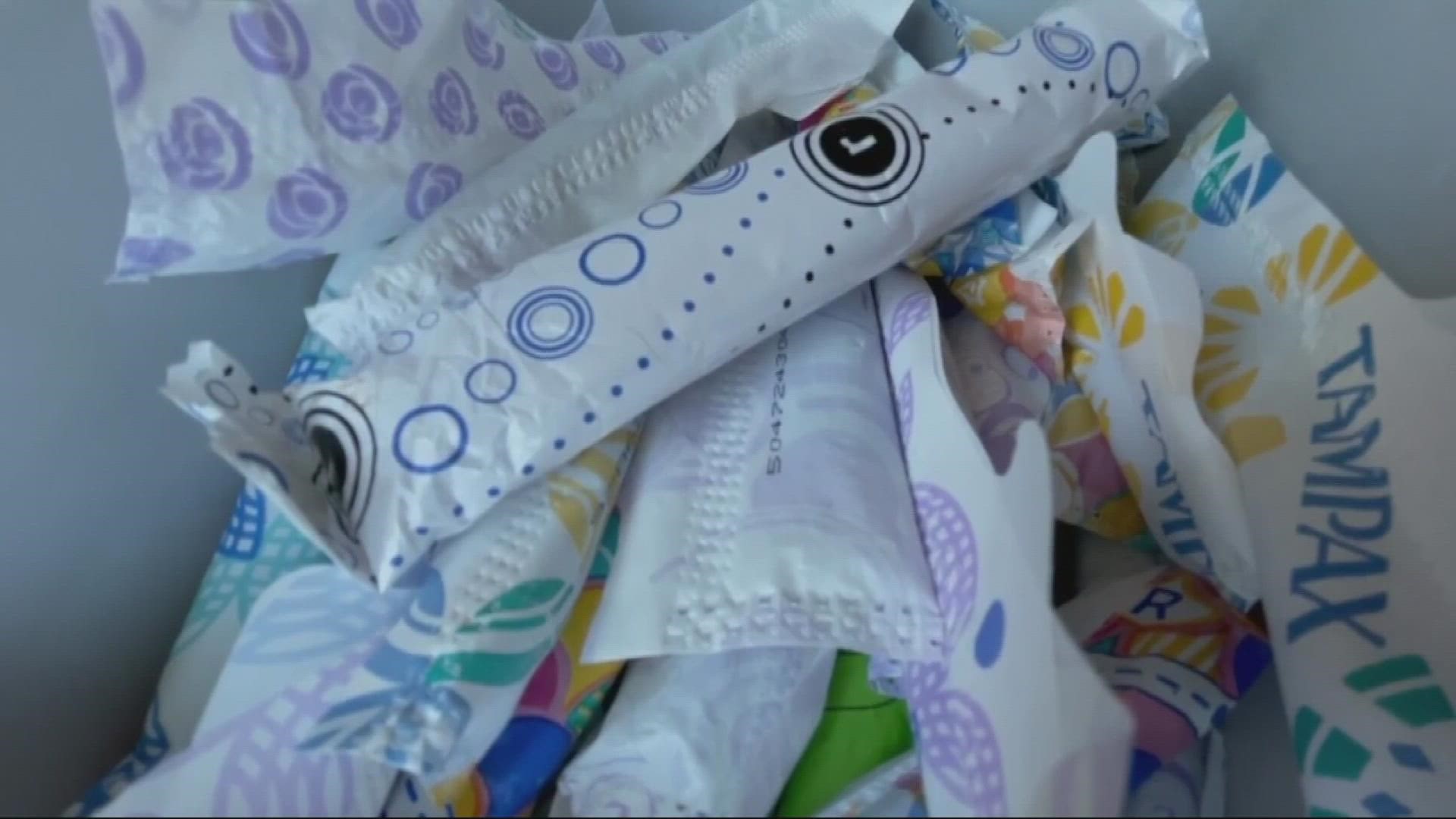PORTLAND, Ore. — Periods and menstruation are topics that historically may have been seen as taboo to talk about.
But now, the state of Oregon is leading the charge to make sure students in public schools have access to free period products.
A press release from the Oregon Department of Education (ODE) said as of this year, “Oregon is the first state to have legislation requiring free menstrual products in every student bathroom in all schools.”
Sasha Grenier, a sexuality education specialist at ODE said each school could have a different method of distribution, like a basket or a mechanical wall unit. She said this year free menstrual products must be in two bathrooms per school. By the end of the next school year, every student bathroom needs to have them. ODE has said schools must “consider all-gender access to the products.”
“This is a basic necessity that over 50% of the population needs to have,” said Sonia Nair, who is in her third year at Oregon State University.
Nair gave input on the state's toolkit for districts that is meant to help implement the change. Nair is also in OSU’s Period club.
“We are a chapter of the National Period Movement organization. It's a nonprofit that aims to start conversations about menstrual equity, period poverty, and help distribute free menstrual product access to individuals or administrators all around the United States,” Nair said.
Nair said the passing of Oregon House Bill 3294 this year, known as the Menstrual Dignity Act, was necessary. She remembers what it was like in high school.
“I had some friends who couldn't afford menstrual products,” said Nair. “That's embarrassing at times when you don't have these products available on hand.”
“One out of five students have struggled to afford menstrual products and more than four out of five students have either missed class time or know someone who did because of lack of access to menstrual products,” Grenier said.
She said those statistics are pulled from national data. Grenier said there have been many testimonies from students that document cases of students leaving in the middle of a test, for instance, because they didn’t have menstruation products with them. In addition to access to free period products, there's also an educational component involving staff training as well as community and student engagement.
RELATED: Portland musician, teacher receives Grammy nomination for 'Best Children's Album'
“The intention is that all students not only have access to products but also have an understanding of menstruation as a positive part of human development without shame or stigma,” said Grenier.
Some schools are ahead of the curve.
Lynn Bailey, a teacher at Falls City High School, said in 2018 staff noticed some students were missing school because of their period. So, staff decided to make a change and installed a cabinet filled with menstrual products in one of the restrooms.
“It's just free access to products of varying sizes, absorptions, types,” said Bailey.
“It's not a luxury item to have period products and it's a necessity. It's a necessity that those things are available to all menstruating students and that they are safe and sanitary.”
She said it's made a difference, though because of the pandemic, data is limited. Still, Bailey said the bathroom addition helps destigmatize periods and allows students to feel more comfortable talking about what they’re going through and have the products they need so they don’t have to miss school.
Grenier said research out of New York City showed a 2.4% increase in attendance after free menstrual products were provided to students at school.
“We’re after those same results,” Grenier said.

